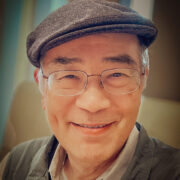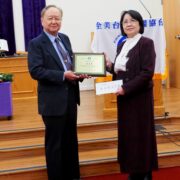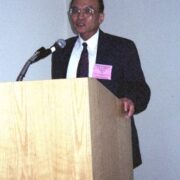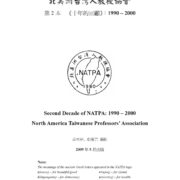The Logic of Tao Philosophy
作者: 王文隆

| We all love mysteries. In more than 2000 years, most Chinese scholars, and many Western scholars, have been convinced that the Tao Te Ching 道德經is mysterious and is beyond normal philosophical reasoning. Therefore, the Tao Te Ching is open for diverging interpretations, and the historical interpretations result in paradoxes and self-contradictions. For this reason, we are all fascinated with the mysteries of Tao. As a perplexing fact, our fascination with Tao has not been based on what we know about Tao, but based on what we cannot comprehend about Tao. The principle of Tao has been declared unfathomable and unknowable. Many Chinese scholars have therefore heralded Tao as a unique Chinese intellectual treasure that has no equivalence in the West. In the West, there have been few attempts to treat the Tao Te Ching as a genuine “philosophical” text. As observed by Ames and Hall, “The Daodejing is a profoundly “philosophical” text, yet it has not been treated as such.” (Ames 2003) Tao remains as a mysterious thought. |
Our understanding of the Tao Te Ching has remained stagnant for the last 2000 years. Most people will frown upon any systematic and analytic study of the Tao Te Ching. Any attempt to change such a historical view will have to face a long and formidable history of free speculations about Tao. It will be difficult to convince anyone that there is a clear principle in Tao philosophy. However, we are about to change such a historical view. We shall still try to show the truth behind the mystery of Tao and show its original intent as an authentic philosophy of nature. As shown by the title of this book, we shall show that there is a principle and logic in the Tao Te Ching and Lao-tzu is a logical philosopher. This is contrary to the prevailing view and should be considered as a significant discovery, if validated. The discovery was accidental, since we started this project without any anticipation of resolving any mystery. However, after a long period of analyzing the text, it has become clear that we can identify the principle of Tao philosophy and show its logical structure. Since this is contrary to the popular belief, we have to carefully provide convincing evidence for the reader.
The PurposeThis book turns out to be the quest for proper language that can match reality. We shall try to understand how the Tao Te Ching, with the logic of Lao-tzu, can match a reality. We believe that, when Lao-tzu wrote the Tao Te Ching, he followed a logic that was understood by his audience. However, that logic has been blurred and lost in the historical interpretations. In a normal case, logic can be derived from the historical interpretations; however, this is clearly not the case for Tao philosophy, since the historical interpretations have not been executed in a logical way. As an alternative approach, we shall temporarily disregard most historical commentaries as “authoritative” and return to the analysis of the Tao Te Ching itself to find its principle. We have found that the historical commentaries have indeed blurred that principle, and there is a clear principle of Tao. Such a bold claim is extraordinary and will certainly be challenged by the traditional Tao philosophers. Nevertheless, the evidence is overwhelming in our favor. The principle will become self-evident once we can establish a proper framework to show its logic. The words of Lao-tzu will not be mysterious when we understand the principle of Tao. The Principle of TaoTao philosophy describes the order of nature and defines the principle of that order. Tao philosophy is a Philosophy of Nature. Nature is in the phenomenal world. This principle may be shown in the proper order of the myriad things. It is difficult to discuss directly this order of nature, since the sole characteristic of this order is Oneness. However, we can see this principle in the proper interrelations of the myriad things in the nature. In other words, our proper views on nature can reflect the proper order of nature. The principle of Tao may be summarized as the Principle of Oneness. When we understand this principle, some of our traditional views on Tao can be re-affirmed, but many other speculations are clearly unwarranted. Our immediate validation of this principle will be a logical interpretation of the Tao Te Ching. However, this principle is universal and we can see the same principle in many other philosophies. We may conclude that Tao philosophy is not a Chinese-only philosophy. It is a principle shared by many Eastern and Western philosophies. Since this principle is fundamental in our reasoning, our analytic approach may be used in many other philosophical discussions. For example, the model shows how the objects can participate in the forms in the Theory of Forms of Plato. The similarity of Tao philosophy to other ancient philosophies, Parmenides and Plotinus in particular, is also astonishing. The principle of Tao is also consistent with many modern Western philosophical observations, such as by Schelling, Kant, Bradley, and Whitehead, etc. Our model also shows the similarity between the logic of Tao philosophy and quantum theory; both are based on complementarity of the opposites in their descriptions of nature. |
AuthorWayne L. Wang was born in Taiwan and migrated to the U.S. for his graduate studies in engineering and physics. In 1971, Dr. Wang received his Ph. D. degree from Massachusetts Institute of Technology. He did research as a theoretical physicist until 1975, publishing numerous papers on nuclear reaction theory. After spending five years on nuclear reactor safety research, he became a telecommunication engineer specializing in advanced mobile telecommunication systems and data communication. His cultural background spans equally both the Eastern and Western worlds. The similarities between Tao and quantum physics have attracted his early interest in Tao Philosophy. He believes that Tao is coherent and dynamic, and it may be systematically represented as a modern theory. With his background in the Chinese language and modern physics, he has been able to formulate a Tao philosophy in a most coherent and consistent manner. He introduces a scientific process to formulate Tao Philosophy in a language independent fashion. He has successfully translated the most difficult Chinese classic, the Laotzu Tao Te Ching, with minimum ambiguity. His first book on this subject, Dynamic Tao and Its Manifestations, shows the intimate similarities between Tao Philosophy and Quantum Cosmology. His analysis of Tao Philosophy will set a new framework for modern Tao studies, in both the Eastern and the Western arenas. |





